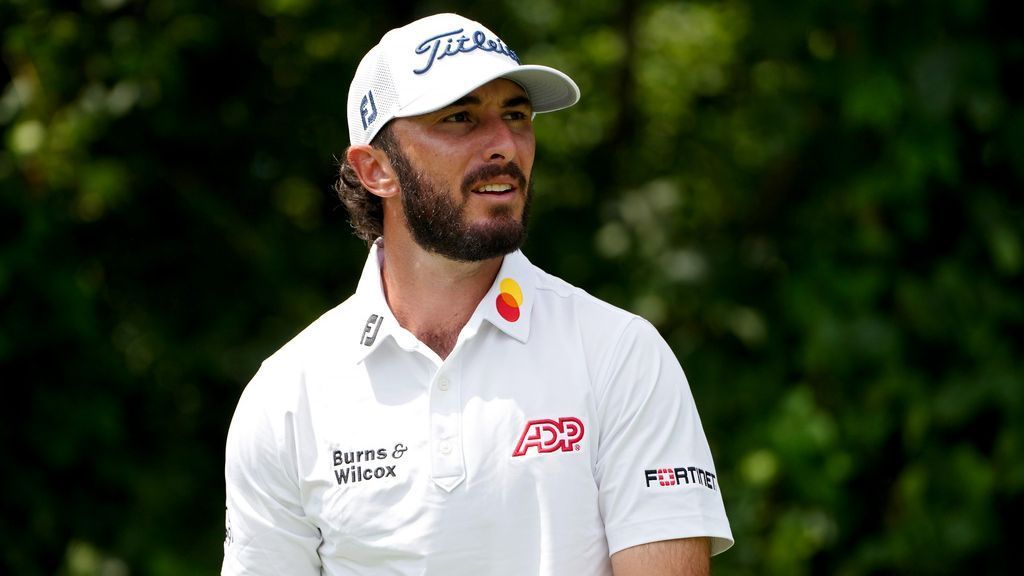Yaroslava Yastreb is a 24-year-old Ukrainian middle-distance athlete from Kherson within the south of the nation. Her house metropolis was captured by the Russian navy on day two of the invasion in February final 12 months and, a couple of days after the occupation, she joined the thousands and thousands of different Ukrainians attempting to flee.
“When conflict broke out, I used to be in Kyiv for my research,” Yastreb says. “Inside 4 days, I discovered a solution to go overseas. The roads by way of western Ukraine had been tough, however once I crossed the border into Poland, there have been free trains and plenty of assist for Ukrainians who had been compelled to flee.”
Her household, who had been nonetheless in Kherson, spent over three weeks in a basement, hiding from the fixed bombing and the Russian military of their metropolis. “My mum and brother ultimately went to stick with associates within the western a part of Ukraine. Then I organised a bus for them to journey overseas. My uncles and my grandmother are nonetheless in Kherson and it’s arduous for us. They don’t need to change properties. However it’s nonetheless harmful for them and it’s tough to contact them.”
However Yastreb feels lucky when she thinks about her new state of affairs in Friedrichshafen, a metropolis on the shore of Lake Constance in southern Germany. “Germany is the perfect nation for Ukrainian individuals,” she says. “The federal government pay for my condo and I’ve language courses on daily basis.”

She has additionally gained a brand new perspective on coaching along with her new coach Norman Feiler, who is predicated in Munich. “My coach in Ukraine was very outdated and coached us within the Soviet Union fashion system,” she says. “Coaching was very arduous, an enormous stress on the physique. I went for 5 years with out my interval and I used to be very skinny.
“I needed to hold my weight underneath 50kg, I used to be pores and skin and bones… and possibly just a little muscle,” she laughs. “My coach in Munich does it as a interest. There’s much less strain for outcomes. Now I can run as a result of I like it, not as a result of I have to and since it’s my job”.
The final 12 months has been a 12 months filled with variations for Yastreb. “A 12 months in the past I used to be in a position to win each race very simply,” she says. “However this summer time it was arduous and it has been arduous for me to know that I don’t have the identical degree as earlier than. Now I handle my coaching with my well being and sooner or later I need to return to Ukraine and compete within the nationwide championships as a special athlete.”
Daria Ozerianova is a former Ukrainian excessive leap junior champion who comes from the port metropolis of Mykolaiv close to the Black Sea in southern Ukraine. Her house city has been repeatedly bombed by the Russian navy and round 150 civilians are thought to have misplaced their lives, despite the fact that the city remains to be in Ukrainian management. In March of final 12 months, as an 18-year-old she fled her house and travelled to Belgium the place she began working at a restaurant.
Arriving in her new nation, Ozerianova initially stayed with a number household and was in a position to be part of the native athletics membership. However within the months following she needed to discover different work to pay lease for an condo. “Now I work out on the native fitness center when I’ve time after work, however it’s arduous to name it athletics,” she says.

Seb Coe with the Ukraine staff (Getty)
After lacking the 2021 season on account of harm, Ozerianova feels that the chance for her to pursue her athletic goals have been placed on maintain. “In my case, conflict ruined the whole lot. Sooner or later I do know I will probably be again. However life now’s so unsure, I can’t ensure of something.”
Not all Ukrainian athletes have been compelled to flee their homeland. Erik Kostrytsya, 23, who two years in the past received a bronze medal as a part of the Ukrainian dash relay staff on the European Beneath-23 Championships in Tallinn and who completed third on the Ukrainian Indoor Championships not too long ago is now based mostly within the capital Kyiv.
Initially from Lutsk, 100 miles north of Lviv in western Ukraine, Kostrytsya describes life within the nation’s capital as “fairly calm” in comparison with the heavier scenes of the battle within the japanese areas of Ukraine. “Kyiv is the perfect place for my coaching, as my house city doesn’t have an indoor monitor. It’s generally robust being right here and there are extra uncertainties, however we now have obtained used to this,” Kostrytsya explains. “The lights going out or alarms going off in the course of our coaching now feels regular.”

Ukraine staff with Stanislav Kovakenko (centre) and Erik Kostrytsya (high proper)
Kostrytsya additionally tells me that “the early weeks of the invasion had been the hardest. All of us lived in full uncertainty over our future. Some athletes determined to hitch the military, others had been determined to flee.”
As early as July of final 12 months the Ukrainian President Volodymyr Zelensky reported to the IOC President that 89 athletes and coaches had been killed whereas in lively service for the Ukrainian navy.
One 12 months on from the beginning of the battle, Kostrytsya says that “immediately issues right here really feel extra steady. We nonetheless hear bomb sirens and there are common energy cuts, however many individuals have returned to their properties and are focussed on defending their freedom by conserving the economic system going and performing as territorial defence.”
He provides that “now there’s a huge incentive to indicate to the world that we’re sturdy, it doesn’t matter what”.
This identical spirit of defiance is current within the Ukrainian Athletics Federation, which in response to Kostrytsya, is eager to make use of the success of its athletes as a means of inspiring the inhabitants. “In any case, our federation is attempting to do the whole lot for us,” he says. “Though funding is proscribed and the competitors calendar isn’t operating as regular, many people on the nationwide staff have managed to discover a solution to proceed our coaching.”

Stanislav Kovakenko, who received the Ukrainian indoor 60m title earlier this 12 months, discovered a special route for his coaching, spending time in the UK and in Slovakia in his bid to win choice for the championships in Istanbul. Previous to the 2022 European Championships in Munich the 25-year-old and his nationwide relay staff spent three weeks coaching at Cardiff Metropolitan College. “Our federation had really obtained presents of assist from over twenty nationwide federations,” recollects Kovakenko, who presently has the quickest time within the dash quartet.
“I can’t say that life is straightforward,” he says. “We have now barely no wage and I really feel that I’m dwelling from in the future to the subsequent. Perhaps my financial savings will final one other three or 4 months, but when I fail to indicate any respectable outcomes, I may need to hitch the military and be able to defend my homeland on the actual entrance.”
Kovakenko explains that he has expertise in coping with tough conditions. “Rising up, I used to be a nasty youngster and I had a tough childhood. I performed nothing however pc video games. However then my trainer launched me to athletics and I went from being a lazy boy who did completely nothing to changing into the quickest man in Ukraine. Sport saved me then. I hope it is going to save me once more now.”
Talking to those athletes, it rapidly turns into apparent how Russia’s invasion of the Ukraine has had a huge effect on athletes as they go about their coaching. Over the previous 12 months all Ukrainians can have discovered methods to stay with the uncertainty of not understanding how their lives would possibly instantly change, and that is no much less the case for the athletes whose tales I heard.
From talking with Kostrytsya and Kovakenko, I obtained the sensation that their dedication to maintain stepping into athletics was a part of a wider want and alternative to reveal the satisfaction and perseverance of the Ukrainian individuals.

Yaroslava Yastreb
Yastreb and Kovakenko additionally acknowledge how fortunate they’ve been as athletes, in comparison with different Ukrainian refugees, in receiving the help of the worldwide athletics group as they attempt to adapt to their new lives. Whether or not it’s the help from Cardiff Metropolitan College for Kovakenko, or the steering of Munich coach Feiler for Yastreb, she displays “the world doesn’t appear so huge when you’re related to the operating world”.
Nevertheless, Ozerianova’s story additionally confirmed me how arduous it has change into for different Ukrainian athletes to maintain going with none shut help from coaches, fellow athletes and federations.

Daria Ozerianova
Wherever I’ve travelled, I’ve at all times valued the help of the native athletics group. From offering a well-recognized routine to a brand new set of associates, becoming a member of a sports activities membership makes settling into a brand new place a lot simpler. Athletics has demonstrated its capacity to facilitate intercultural communication, to supply a spotlight and to encourage private improvement, particularly in probably the most tough of instances.
» For extra particulars of how one can help a challenge to facilitate the participation of the Ukrainian relay groups on the 2024 Olympic Video games, please go to this hyperlink the place you too can make a donation.
» The creator, Almi Nerurkar, is midway by way of a 12 months overseas as a language scholar in Madrid. Her PBs embrace 4:20.51 for 1500m, 9:21.34 for 3000m and 16:21.64 for 5000m


















